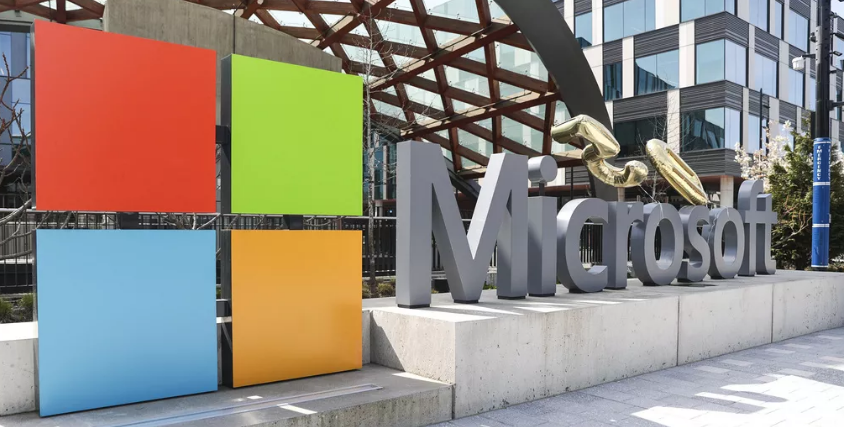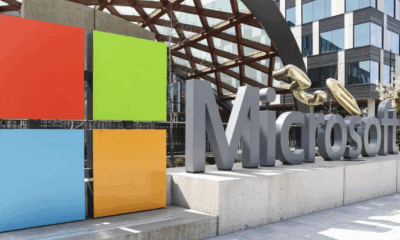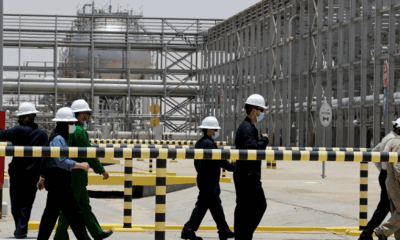Business
GSK Shares Surge Following $2.2 Billion Zantac Settlement
Shares in pharmaceutical giant GlaxoSmithKline (GSK) surged by more than 6% after the company announced a settlement of up to $2.2 billion (€2.01 billion) to resolve tens of thousands of lawsuits in the US related to its discontinued heartburn medication, Zantac. The drug, once a blockbuster, had faced multiple allegations of causing cancer.
The settlement covers approximately 93% of the claims GSK was facing, which involves around 80,000 plaintiffs. An additional $70 million (€64 million) will be paid to resolve a whistleblower lawsuit brought by the US independent laboratory Valisure, which accused GSK of committing fraud by hiding the potential cancer risks associated with Zantac.
The whistleblower settlement is a “Qui Tam” case under the Financial Conduct Authority (FCA), a type of lawsuit where whistleblowers can file on behalf of the US government. Valisure’s claims played a significant role in the controversy surrounding the drug.
Zantac’s History and Concerns
Zantac, first introduced in the US in 1983, quickly became one of the world’s best-selling drugs, generating more than $1 billion (€0.91 billion) in annual sales. It was marketed by several major pharmaceutical companies, including Sanofi, Pfizer, and Boehringer Ingelheim.
However, concerns about the drug’s safety began to emerge in recent years. The key ingredient in Zantac, ranitidine, was found to potentially convert into a carcinogen, N-nitrosodimethylamine (NDMA), when stored at higher temperatures or over long periods. This prompted a series of recalls starting in 2019, with the US Food and Drug Administration (FDA) recalling the drug in 2020. Other countries, including the UK, Australia, and the European Union, also issued recalls.
Despite the legal settlement, GSK has continued to deny any wrongdoing, maintaining that the evidence linking ranitidine to cancer is inconsistent and unreliable.
GSK’s Statement on the Settlement
In a statement, GSK said: “While the scientific consensus remains that there is no consistent or reliable evidence that ranitidine increases the risk of any cancer, GSK strongly believes that these settlements are in the best long-term interests of the company and its shareholders as they remove significant financial uncertainty, risk, and distraction associated with protracted litigation.”
The company expects to record a charge of £1.8 billion (€2.15 billion) in its third-quarter results for 2024 in connection with the settlements. Despite the financial impact, GSK assured that these costs would not affect its growth agenda or research and development investment plans.
GSK’s stock rally reflects investor confidence that the settlement will bring resolution to the long-standing litigation and remove a significant overhang for the company.
Business
China and Europe Drive Global EV Growth as U.S. Market Stalls Amid Policy Uncertainty

Global sales of electric and plug-in hybrid vehicles continued to surge in April, driven by strong performance in China and Europe, despite a slowdown in North America, according to new data released Wednesday by EV research firm Rho Motion.
Worldwide, electric vehicle (EV) sales reached 1.5 million units in April, a 29% increase compared to the same month in 2024. However, this figure marked a 12% decline from March, indicating a monthly dip in momentum. From January to April, EV sales totaled 5.6 million units — a 29% rise year-on-year.
Europe and China were the key drivers of growth. Sales in Europe jumped by 35% in April, with China close behind at 32%. Meanwhile, the rest of the world saw an even stronger April growth rate of 51%. In contrast, North American sales declined by 5.6% during the same period.
“Tariff negotiations are dominating headlines, but quietly, domestic manufacturers in China and the EU are growing market share,” said Charles Lester, Data Manager at Rho Motion. “The EU is the standout performer in 2025, as emissions targets have ignited a rapid industry transition to electric.”
From January to April, China posted a 35% increase in EV sales compared to the previous year. Europe followed with 25%, while North America saw more modest growth at just 5%.
Experts point to political developments as a key factor shaping the market’s trajectory. “EV adoption is accelerating — but politics, not technology, will decide who leads and who lags,” said Professor Christian Brand, a transport and energy expert at Oxford University.
In the U.S., uncertainty over the future of green tax incentives under President Trump’s administration is causing hesitation. Legislation under review would eliminate the current $7,500 federal tax credit for EV purchases by the end of 2026 and limit eligibility further. Tax breaks for commercial and second-hand EVs could also be scrapped.
Meanwhile, China is rolling out new consumer incentives to stimulate its slowing economy. Buyers trading in older vehicles for new EVs are now eligible for subsidies worth 20,000 yuan (€2,471), further boosting demand.
Trump’s 25% tariffs on imported vehicles and components have complicated matters for automakers with global supply chains. While recent executive orders offer some tariff relief, industry leaders remain concerned about profitability and dampened consumer sentiment.
Despite the policy divide, more than one in four cars sold globally this year is expected to be electric, according to the International Energy Agency.
“The shift to EVs is a gradual evolution, not a revolution,” said Brand. “It’s not just about switching engines — it’s about reshaping entire industries.”
Business
Microsoft Lays Off 6,000 Employees Amid Strategic Shift and AI Investment Drive

Microsoft has begun laying off approximately 6,000 employees, accounting for nearly 3% of its global workforce, in what is its largest round of job cuts in over two years. The company cited organizational restructuring as the reason behind the move, which comes despite strong quarterly earnings and ongoing investment in artificial intelligence (AI) infrastructure.
The layoffs began Tuesday and span various departments, teams, and global regions, though many of the affected roles are concentrated in Microsoft’s home state of Washington. The company notified state officials that 1,985 jobs would be cut at its Redmond headquarters, with most of those roles tied to software engineering and product management.
“This is a day with a lot of tears,” wrote Scott Hanselman, a Microsoft vice president, on LinkedIn, where several affected employees and company leaders shared news of the layoffs. “These are people with dreams and rent and I love them and I want them to be OK.”
The cuts affect units across the company, including the Xbox gaming division and LinkedIn, the professional networking platform owned by Microsoft. The company stated that the layoffs would impact workers at all levels but are particularly focused on reducing management layers to enhance organizational efficiency.
The move follows Microsoft’s earlier announcement in January of smaller, performance-based layoffs. This latest round is the largest since early 2023, when the company cut 10,000 positions in the wake of pandemic-era overhiring.
Microsoft Chief Financial Officer Amy Hood indicated during an April earnings call that while the company’s headcount had increased 2% year-over-year by March, it had slightly declined compared to the end of 2024. Hood emphasized the company’s aim to “increase agility by reducing layers with fewer managers.”
The restructuring comes as Microsoft intensifies its investment in AI technology, with an estimated $80 billion allocated for AI-related infrastructure, including data centers, in the current fiscal year. However, analysts suggest that while AI may influence how Microsoft operates, the layoffs are more reflective of strategic realignment than automation-driven job replacement.
“Big tech companies have trimmed their workforces as they rearrange their strategies and pull back from aggressive hiring during the early post-pandemic years,” said Daniel Zhao, an economist at Glassdoor.
With economic uncertainties looming and consumer spending patterns shifting, experts say Microsoft’s decision could also reflect a cautious approach to longer-term planning amid geopolitical and market fluctuations.
Laid-off employees in Washington have been informed their final day will be in July.
Business
Sixt Shares Dip After Mixed Q1 Results Despite Revenue Growth Abroad
-

 Business12 months ago
Business12 months agoSaudi Arabia’s Model for Sustainable Aviation Practices
-

 Business12 months ago
Business12 months agoRecent Developments in Small Business Taxes
-

 Politics12 months ago
Politics12 months agoWho was Ebrahim Raisi and his status in Iranian Politics?
-

 Business10 months ago
Business10 months agoCarrectly: Revolutionizing Car Care in Chicago
-

 Business11 months ago
Business11 months agoSaudi Arabia: Foreign Direct Investment Rises by 5.6% in Q1
-

 Technology12 months ago
Technology12 months agoComparing Apple Vision Pro and Meta Quest 3
-

 Politics12 months ago
Politics12 months agoIndonesia and Malaysia Call for Israel’s Compliance with ICJ Ruling on Gaza Offensive
-

 Sports9 months ago
Sports9 months agoKeely Hodgkinson Wins Britain’s First Athletics Gold at Paris Olympics in 800m


























